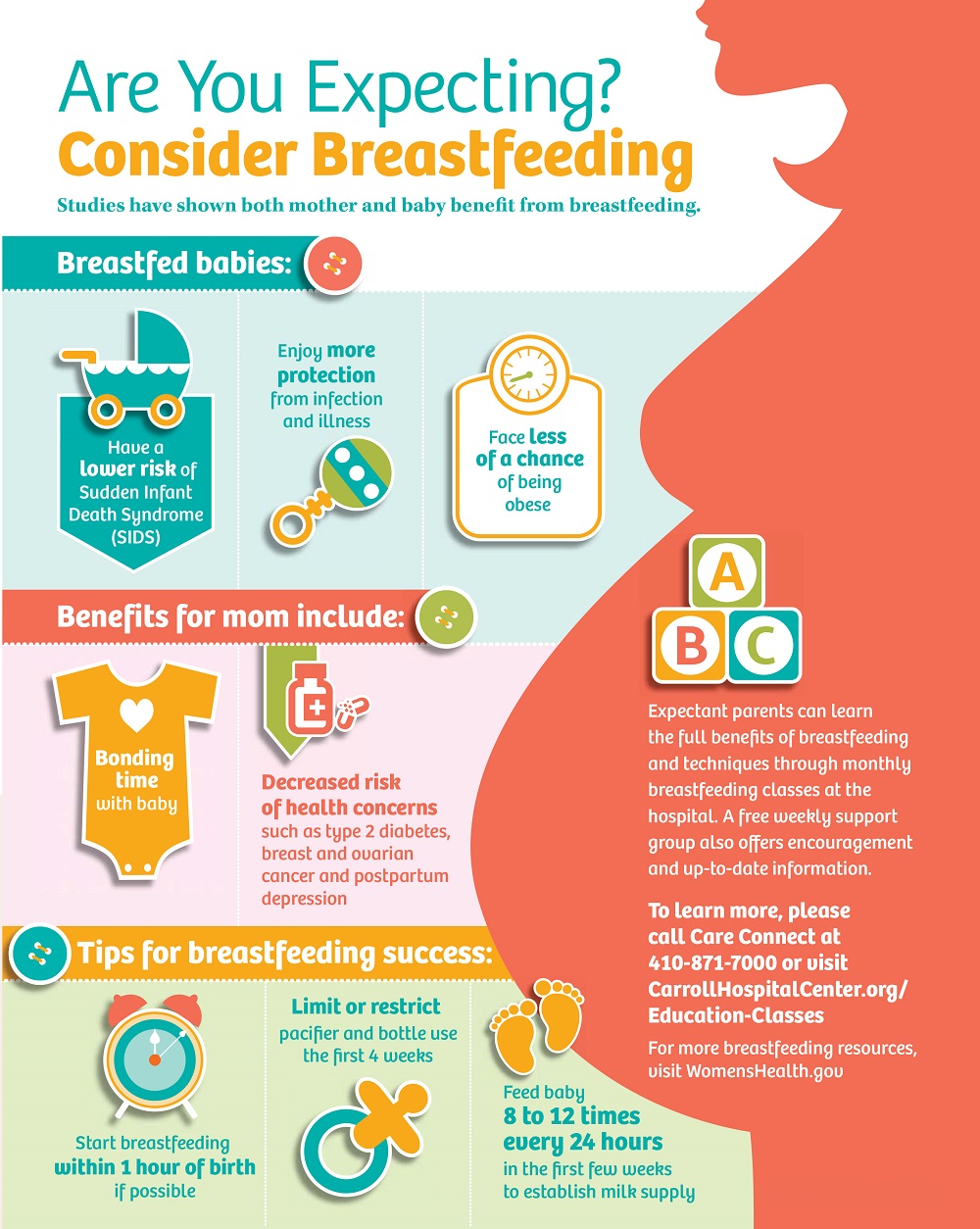While expecting a baby, you think about getting the room prepared, picking names, registering for gifts and maybe taking a childbirth class. But, after having a baby, many parents wish they would have learned more about breastfeeding and how to be successful.
In honor of National Breastfeeding Month, here are eight tips I wish someone had told me about breastfeeding when I was young (and not a lactation consultant!):
Take a breastfeeding class before delivery.
Carroll Hospital offers a virtual class once a month. Breastfeeding is natural, but there is a learning curve for all new mothers and their infants.
It’s all about the latch!
Breastfeeding should not hurt if the infant latches properly with a wide-open mouth. Have the lactation consultant work with you in the hospital during your stay.
Learn different ways to hold the baby as you nurse.
Lying down to nurse can be helpful when you are tired.
Feed throughout the night at first.
This will help bring in an excellent milk supply and assure that your baby will start gaining weight quickly.
Babies are fussy, irritable and eat a lot the second day and night.
Feeding frequently is called cluster feeding. It is normal newborn behavior. The baby needs to cluster feed to bring in your milk supply. It is exhausting, but it will not last too long.
Use it or lose it.
The best way to make more milk is to feed the baby. An “empty” breast makes more milk.
Don’t wait too long to introduce a bottle.
By 3 to 4 weeks of age introduce a bottle of your pumped breastmilk to your baby and learn how to pace bottle feed (which gives your baby more control of the feeding pace).
Attend a breastfeeding support group.
Mother-to-mother support is so helpful to continuing your journey and help you meet your goals! Carroll Hospital’s breastfeeding support group meets weekly.
Angela Baublitz, RN, IBCLC, is a lactation consultant in Carroll Hospital’s Family Birthplace.


